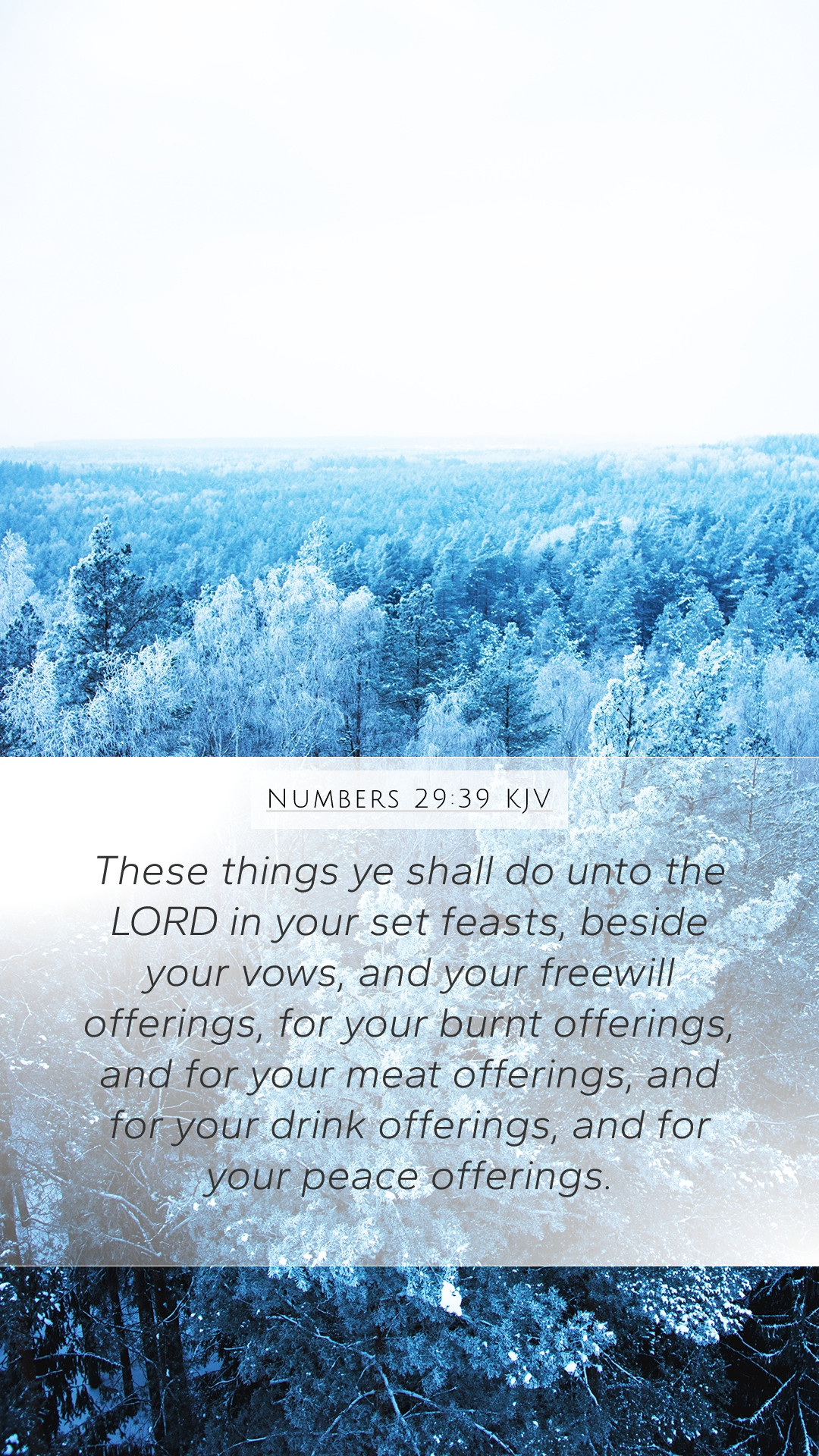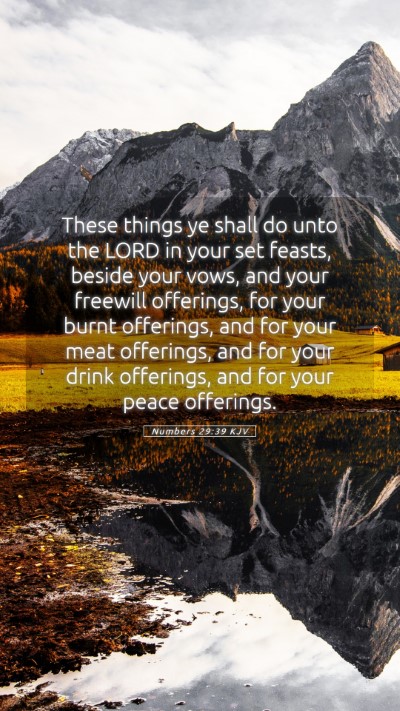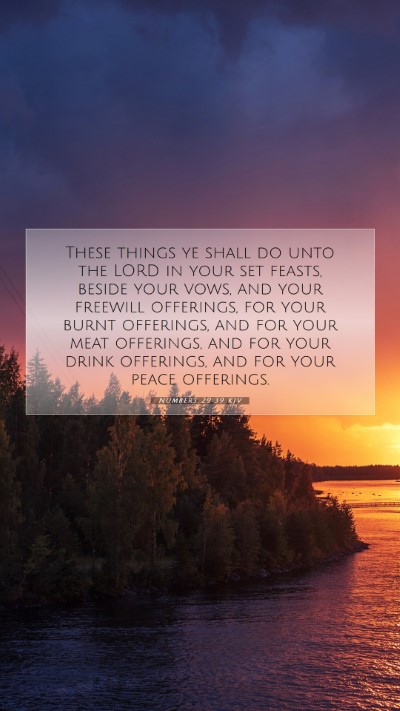Understanding Numbers 29:39
Numbers 29:39 states: "These are the things which ye shall do unto the Lord in your solemn feasts, besides your vows, and your freewill offerings, for your burnt offerings, and for your meat offerings, and for your drink offerings, and for your peace offerings." This verse emphasizes the prescribed offerings for the solemn feasts of Israel, showcasing the importance of dedicated worship and devotion to God during these significant times.
Bible Verse Meanings
The meaning of this Bible verse can be understood through various public domain commentaries which provide insights into its theological implications and historical context.
Insights from Matthew Henry
Matthew Henry explains that this verse highlights the various offerings mandated during the feasts, which signify different aspects of worship and relationship with God. He indicates that these offerings are not only sacrifices but are also an expression of gratitude and acknowledgment of God’s provision. Henry points out the significance of each type of offering:
- Burnt Offerings: Symbolizing total dedication to God.
- Meat Offerings: Representing thankfulness and sustenance.
- Drink Offerings: Indicating a life poured out in service.
- Peace Offerings: Celebrating communion and fellowship with God.
Insights from Albert Barnes
Albert Barnes emphasizes the structured nature of worship outlined in this verse, which reflects the orderliness of God’s requirements for His people. He remarks that these instructions serve to remind the Israelites of their covenant obligations. Barnes notes that each offering serves a dual purpose: it is both an act of obedience and a means of expressing the worshippers' devotion to God.
Insights from Adam Clarke
Adam Clarke focuses on the spiritual implications of the offerings presented in Numbers 29:39. He asserts that these acts of worship signify a commitment to both God's law and His grace. Clarke interprets the mention of “freewill offerings” as being particularly significant, as it highlights the voluntary nature of true worship, which is motivated by love and devotion rather than obligation.
Summary of Biblical Exegesis
This verse illustrates several key themes crucial to the understanding of Scripture:
- Worship and Obedience: The necessity of adhering to God's commands during sacred times.
- Offerings as Expressions: Each offering represents different aspects of one's relationship with God which can offer guidance for modern worship practices.
- Community Aspect: The collective participation in these rituals emphasizes unity among the Israelites as they approach God together.
Applying Bible Verses to Daily Life
In applying Numbers 29:39 to contemporary life, believers are called to evaluate their own worship practices. Are they approaching God with devotion? Are their offerings — whether of time, talent, or treasure — reflective of genuine gratitude and commitment? This scripture encourages self-examination and faithful participation in acts of worship.
Additional Bible Cross References
- Exodus 23:14-17: Instructions on the annual feasts.
- Leviticus 7:11-15: Details on thank offerings.
- Psalm 50:14-15: God desires thanksgiving and fulfilled vows.
Conclusion
In conclusion, Numbers 29:39 remains a rich text filled with instructions for worship that connect back to the heart of God's covenant with His people. The structured offerings not only served a liturgical function but also encouraged a deeper personal and communal relationship with the Lord.


